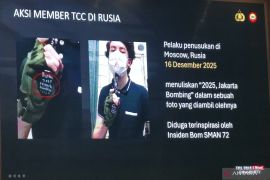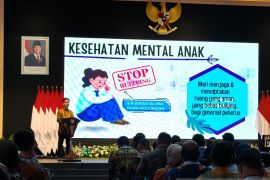The victim, Muhlis, was still under the intensive care of Moh.Anwar general hospital`s doctors due to his serious injuries, Sumenep police spokesman, Commissioner Edy Purwanto said.
Speaking to newsmen here Saturday, he said Muhlis` serious wounds had forced him to remain at the hospital so that the police investigators could not yet summon him for questioning.
Muhlis was suspected of possessing the home-made bomb frequently used for poaching, he said.
The police did not only find the home-made bomb materials but also a home-made gun and bullets in his house. "We want to know where he get all stuffs," he said.
Edy Purwanto said a number of policemen were deployed to the hospital to secure him and monitor his health condition.
The home-made bomb exploded inside Muhlis` house on Wednesday at 05.30 am local time, damaging the house and injuring him.
Blast fishing activity in various parts of Indonesia, including East Java Province, can still be found. This condition has attracted world attention.
Endowed by nature with more than 50,000 square kilometers of coral reefs, Indonesia has been listed by the United Nations as a nation with the largest coral reef resources in the world, along with Australia and the Philippines.
According to the United Nations Environment Program World Conservation Monitoring Center (UNEP-WCMC)`s World Atlas of Coral Reefs (2001), Indonesia had 51,020 square kilometers of coral reefs or 17.95 percent of the world`s coral reefs.
This archipelagic nation topped the list , followed by Australia with 48,460 square kilometers, the Philippines (25,060), France (14,280), Papua New Guinea (13,840), Fiji (10,020), Maldives (8,920), Saudi Arabia (6,660), Marshall Islands (6,110) and India (5,790).
The benefits that Indonesia can get from its coral reefs are obvious because coral reefs are evidently the sources of food and income for a lot of people from fisheries and tourism and also sources of raw materials for medicines.
But the UNEC-WCMC has warned that activities, such as fishing using explosives, are seriously degrading coral reefs in various parts of the world, including in Indonesia.
The UN body`s warning is based on factual information collected over the years. Blast fishing itself has been practiced in Indonesia since World War II.(*)
R013/HAJM/A014
Editor: Jafar M Sidik
Copyright © ANTARA 2011











